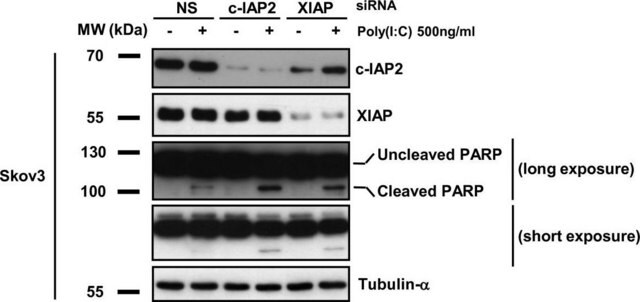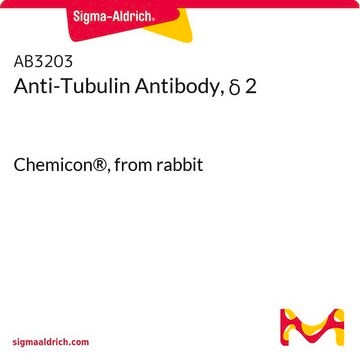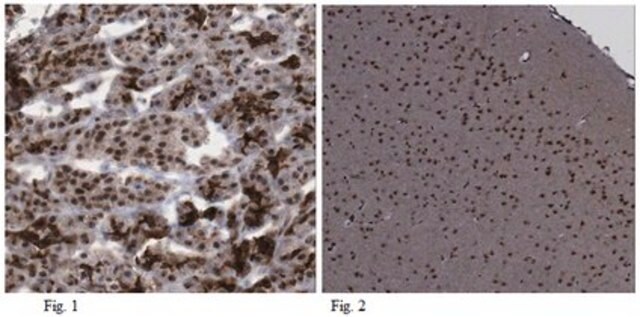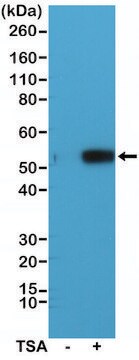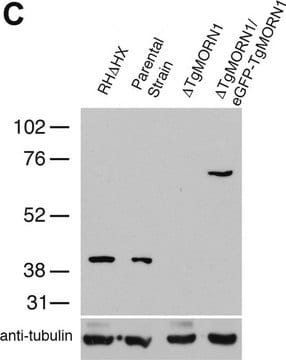AB3201
Anti-Tubulin Antibody, Detyrosinated
Chemicon®, from rabbit
Synonym(s):
Glu Tubulin
About This Item
Recommended Products
biological source
rabbit
Quality Level
antibody form
affinity purified immunoglobulin
antibody product type
primary antibodies
clone
polyclonal
purified by
affinity chromatography
species reactivity
rat, mouse, sea urchin, human, plant
should not react with
Saccharomyces cerevisiae
species reactivity (predicted by homology)
mammals
manufacturer/tradename
Chemicon®
technique(s)
immunocytochemistry: suitable
immunohistochemistry: suitable (paraffin)
western blot: suitable
NCBI accession no.
UniProt accession no.
shipped in
dry ice
target post-translational modification
unmodified
Gene Information
human ... TUBA1A(7846)
General description
Specificity
Immunogen
Application
A previous lot was used on either frozen or paraffin embedded, fixed tissue (Gundersen, G.G., 1984): 1:200-1:500 dilution.
Optimal working dilutions must be determined by the end user.
Cell Structure
Cytoskeletal Signaling
Quality
Western Blot Analysis: 1:500 dilution of this lot detected detyrosinated tubulin on 10 μg of L6 lysate.
Target description
Physical form
Storage and Stability
Handling Recommendations:
Upon first thaw, and prior to removing the cap, centrifuge the vial and gently mix the solution. Aliquot into microcentrifuge tubes and store at -20°C. Avoid repeated freeze/thaw cycles, which may damage IgG and affect product performance.
Analysis Note
Hela Whole Cell Lysate.
Other Notes
Legal Information
Disclaimer
Not finding the right product?
Try our Product Selector Tool.
recommended
Storage Class Code
12 - Non Combustible Liquids
WGK
WGK 2
Flash Point(F)
Not applicable
Flash Point(C)
Not applicable
Certificates of Analysis (COA)
Search for Certificates of Analysis (COA) by entering the products Lot/Batch Number. Lot and Batch Numbers can be found on a product’s label following the words ‘Lot’ or ‘Batch’.
Already Own This Product?
Find documentation for the products that you have recently purchased in the Document Library.
Customers Also Viewed
Our team of scientists has experience in all areas of research including Life Science, Material Science, Chemical Synthesis, Chromatography, Analytical and many others.
Contact Technical Service
